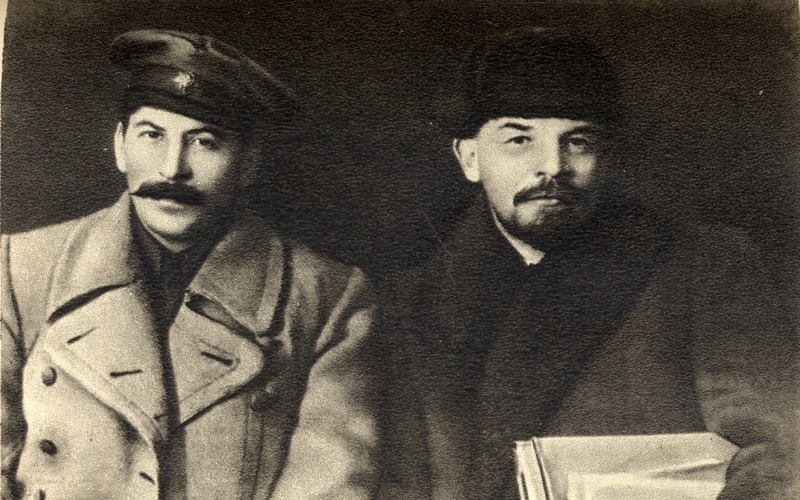
The Soviet Experience
Russia's road to communism
Russia was to become a constitutional monarchy. The czar would be controlled by the Parliament (Duma), that he had dissolved in 1916. In those days, the provisional government included, among others, prince Lvov, the historian Milyukov, and the social-democrat lawyer Kerensky, both liberals and moderate socialists. It was a liberal revolution that resulted in the proclamation of the Republic. The government pledged to control the war efforts more efficiently.
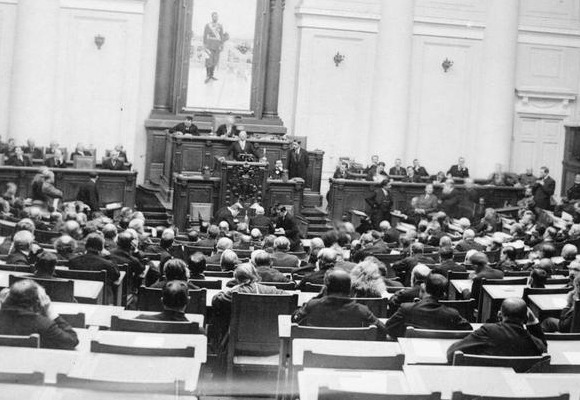
1 of 4
Czar Nicholas II was forced to abdicate because of in-house tensions. A provisional government was formed, uniting liberals and moderate socialists that promised to lead the war efforts more efficiently. The real power was held by the socialist leaders of the Sankt Petersburg Soviet. They wanted to end the conflict through a general peace, without “annexations or war compensations”. This perspective would not have been accepted by neither the Germans nor the Allies.
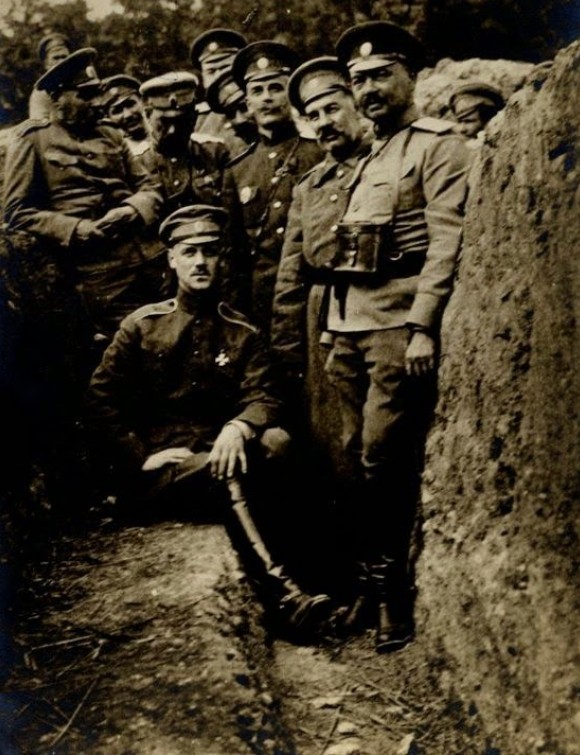
2 of 4
Grand Duke Michael refused to take power. By his refusal begins that what historians call the “dual power” between the newly constituted “Provisional Duma Committee” and the “Provisional Executive Committee”.
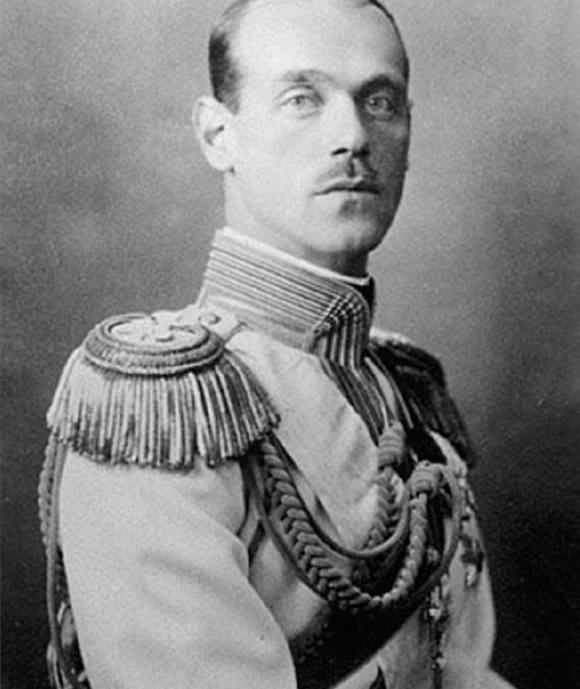
3 of 4
Czar Nicholas II, with the provisional government's approval, recommended his brother, Grand Duke Michael, as the next czar. The nominee was appreciated not only by the soldiers, the peasants and the working class, but also by the leading class of Russia.
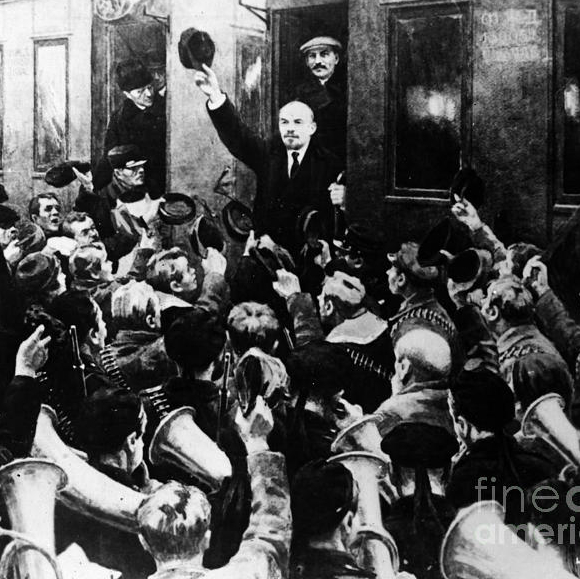
4 of 4
Most of the october bolshevik “revolution” representatives were in the Western world: Trotsky in New York, Lenin and Zinoviev in Switzerland. Trotsky admitted afterhand that: “The revolution surprised us in deep sleep, just like the foolish virgins in the Gospel”.
The February Revolution is about the people’s discontent with some of the decisions imposed by the authorities: the idea of food rationing cards. It was manifested by protests, and it gradually became a revolution. The lack of bread and of other basic foods together with the defeats on the front and the difficult working conditions created a situation that was impossible to control.
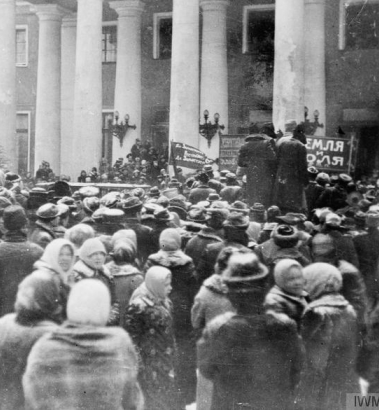
1 of 5
For three days in a row worker’s processions take place. Men and women from the suburbs invade the capital’s downtown streets. No severe incidents occur.
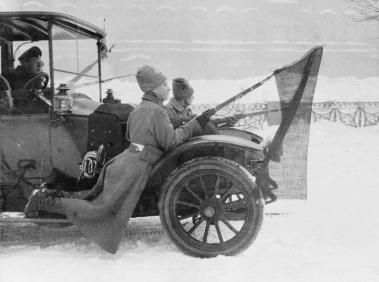
2 of 5
The czar abdicates, but the Grand Duke Michael does not succeed in imposing his authority. The power splits between The Provisional Duma Committee and The Soviet Executive Committee, which was dominated by socialist parties. The new established government lead by Prince Lvov is recognized by the allies. It will promulgate a set of laws that offer citizen liberties for the first time in Russia like freedom of the press, association and reunion.
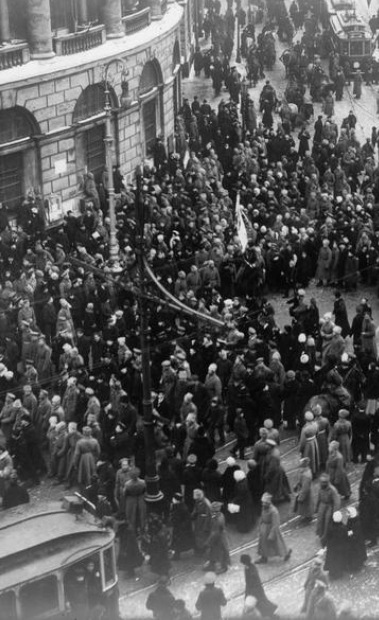
3 of 5
The czar sends a telegrams with the order to terminate the unrest. The fourth manifestation against the government would result in 150 deaths. Because the soldiers refuse the officers are those who shoot the unarmed people. During the following night several regiments revolt and fraternize with the crowd. They take hold of the most important buildings and begin a marsh to capture the Winter Palace.
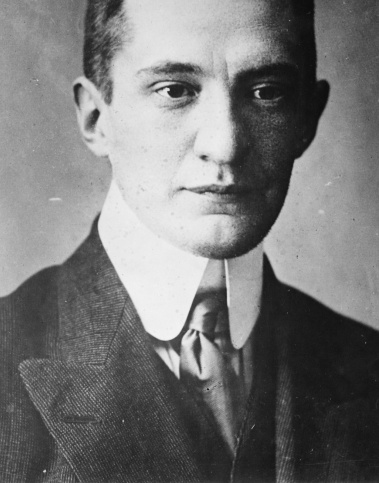
4 of 5
Kerenski meets with the participants in the insurrection on behalf of the Duma deputies that were in session at the Tauride Palace. Violence erupts among the crowd and the soldiers leading to over 1500 victims in a few days. The victims were mostly officials, symbols of a regime confused by a powerless and incapable autocracy, coupled with the suffering caused by the war.
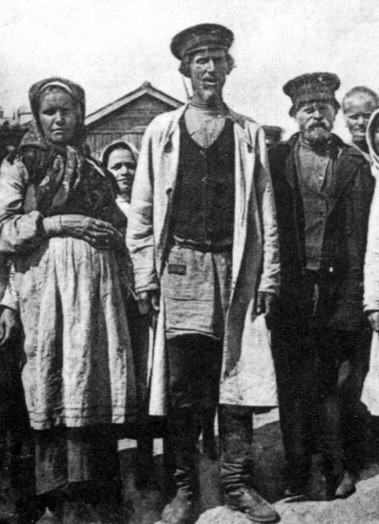
5 of 5
On the countryside it begins the fight of the peasants against the noblemen that owned the land. In the cities, especially in Petrograd and Moscow, the workers of various sectors go on strike. They also organize militarily.
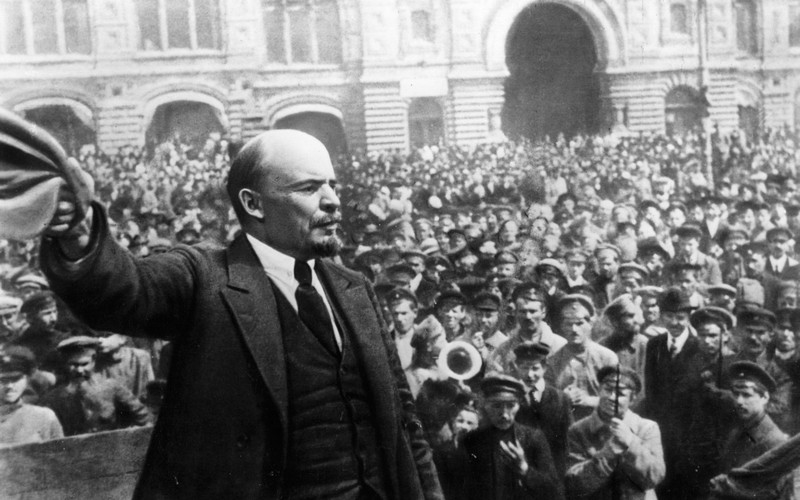
Lenin
Lenin was a Russian revolutionary who took over political power together with the Bolsheviks. Lenin became the leader of the newly installed regime, and influenced the country as he pleased.
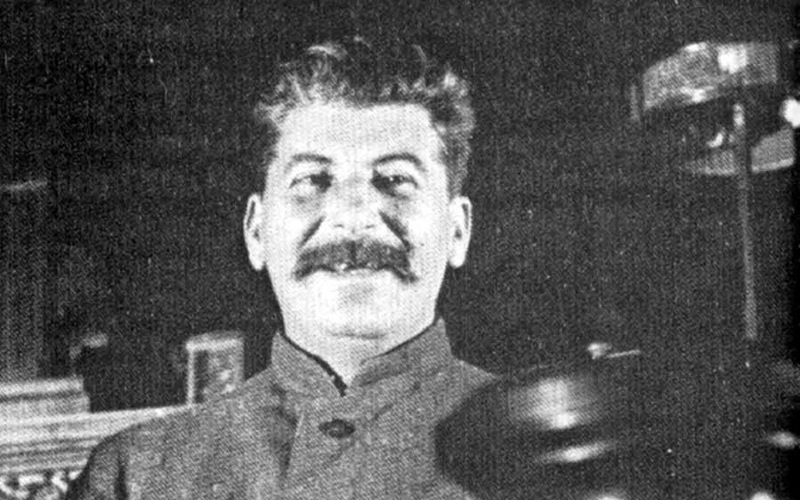
Joseph Vissarionovich Stalin
Joseph Vissarionovici Dzhugashvili, known as ‘Stalin’, was the leader of the Union of Soviet Socialist Republics (USSR) and a central figure of the communist world.





